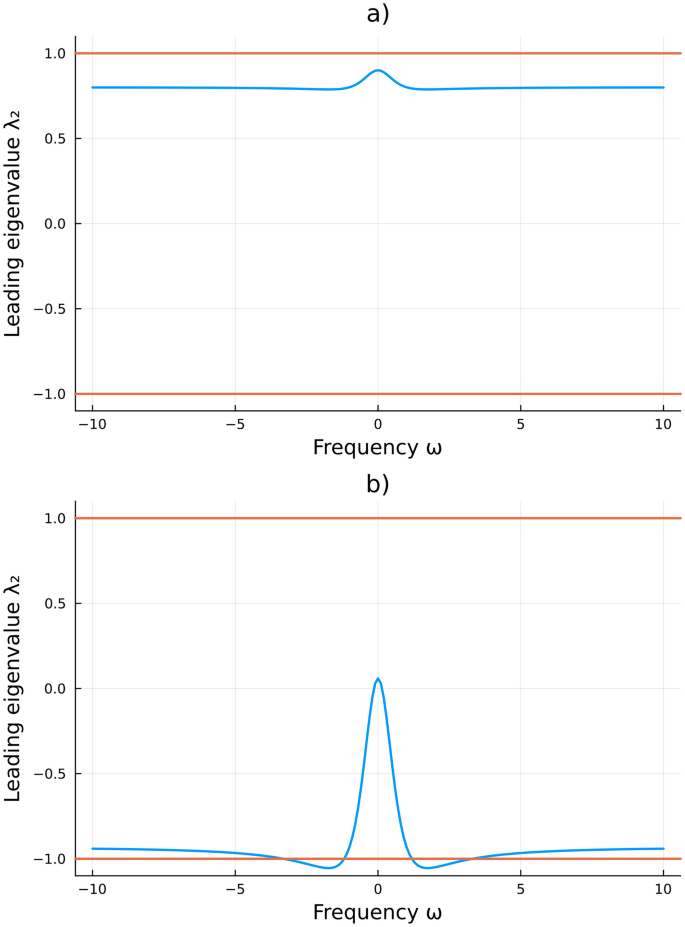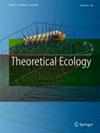在具有群体防御的消费者-资源系统中,局部相互作用影响资源的扩散
IF 1.1
4区 环境科学与生态学
Q4 ECOLOGY
引用次数: 0
摘要
积分差分方程是描述生态种群在空间上分散的离散时间空间显式模型。这一框架有助于研究生物的传播动态以及生态相互作用如何影响它们的传播。当研究诸如消耗之类的相互作用时,分散率可能随着生命周期的阶段而变化,例如分散的幼鱼和无根的成鱼。在非分散阶段,资源可能会进行群体防御,以保护自己不被消耗。这些局部的非分散性相互作用可能会限制产生的分散性新成员的数量,从而影响种群传播的速度。在资源群体中,我们提出了一个具有有限成年期移动和群体防御机制的空间消费者-资源系统。我们使用第IV型Holling功能反应来模拟群体防御,这限制了成年资源种群的生存,并提高了幼鱼的消费生产。我们发现固结成人的高死亡率水平会破坏资源的承载能力。此外,在资源密度较高的情况下,群体防御导致新入侵区域资源的局部增长较慢,原因是种内竞争超过了资源消耗对资源增长的影响。本文章由计算机程序翻译,如有差异,请以英文原文为准。

Local interactions affect spread of resource in a consumer-resource system with group defense
Abstract Integrodifference equations are a discrete-time spatially explicit model that describes the dispersal of ecological populations through space. This framework is useful to study spread dynamics of organisms and how ecological interactions can affect their spread. When studying interactions such as consumption, dispersal rates might vary with life cycle stage, such as in cases with dispersive juveniles and sessile adults. In the non-dispersive stage, resources may engage in group defense to protect themselves from consumption. These local nondispersive interactions may limit the number of dispersing recruits that are produced and therefore affect how fast populations can spread. We present a spatial consumer-resource system using an integrodifference framework with limited movement of their adult stages and group defense mechanisms in the resource population. We model group defense using a Type IV Holling functional response, which limits the survival of adult resource population and enhances juvenile consumer production. We find that high mortality levels for sessile adults can destabilize resource at carrying capacity. Furthermore, we find that at high resource densities, group defense leads to a slower local growth of resource in newly invaded regions due to intraspecific competition outweighing the effect of consumption on resource growth.
求助全文
通过发布文献求助,成功后即可免费获取论文全文。
去求助
来源期刊

Theoretical Ecology
环境科学-生态学
CiteScore
3.30
自引率
6.20%
发文量
23
审稿时长
>12 weeks
期刊介绍:
Theoretical Ecology publishes innovative research in theoretical ecology, broadly defined. Papers should use theoretical approaches to answer questions of ecological interest and appeal to and be readable by a broad audience of ecologists. Work that uses mathematical, statistical, computational, or conceptual approaches is all welcomed, provided that the goal is to increase ecological understanding. Papers that only use existing approaches to analyze data, or are only mathematical analyses that do not further ecological understanding, are not appropriate. Work that bridges disciplinary boundaries, such as the intersection between quantitative social sciences and ecology, or physical influences on ecological processes, will also be particularly welcome.
All areas of theoretical ecology, including ecophysiology, population ecology, behavioral ecology, evolutionary ecology, ecosystem ecology, community ecology, and ecosystem and landscape ecology are all appropriate. Theoretical papers that focus on applied ecological questions are also of particular interest.
 求助内容:
求助内容: 应助结果提醒方式:
应助结果提醒方式:


